Football/Soccer Session (Difficult): Third man runs

Profile Summary

| Name: | Paul Quinn |
|---|---|
| City: | Huddersfield |
| Country: | United Kingdom |
| Membership: | Adult Member |
| Sport: | Football/Soccer |
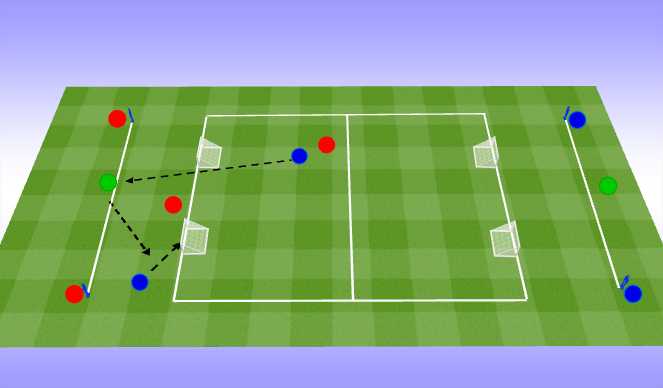
See the guidance at the top of this page to understand why you are not seeing interactive Football/Soccer images.

2. Progression 2v2+2 (point, join, run)
PROGRESSION
Goals are rotated
2 v 2 + 2 game to introduce the topic of third man runs.
Players have to enter the end zone to score into goal which are facing the target player.
Body position and timing of movement is critical in this more advanced progression.
Players start from behind the manequin on their respective half of the pitch.
On the whistle they sprint onto the pitch to play a 2 v 2 + 2. T
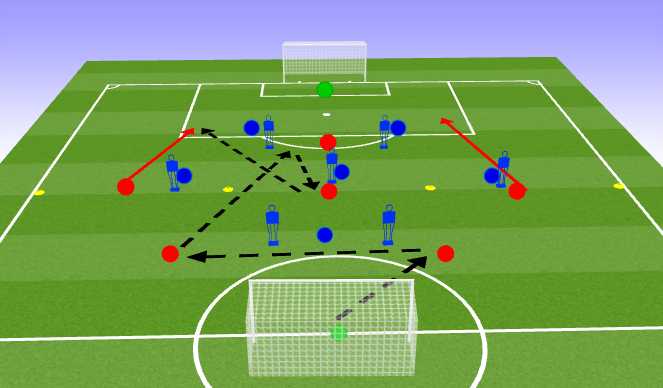
See the guidance at the top of this page to understand why you are not seeing interactive Football/Soccer images.

3. Playing structure (Point, join, run)
Passing structure 1
These patterns are designed to give players a framework which to work from during game situations. This also familiarizes the patterns with realistic distances and game conditions. They can be repeated unopposed and semi opposed
Goalkeeper to centre back.
Movement off the manequin to receive to play to opposite centre back.
Ball played into the point who moves towards the ball
Midfielder supprots the point man who sets the ball for the midfielder to play in the wide player.
Wide player movement detail out to in, dynmaic with timing. Ball in front of the receiving player.
Players attack the box.
Centre backs must engage up to the yellow line
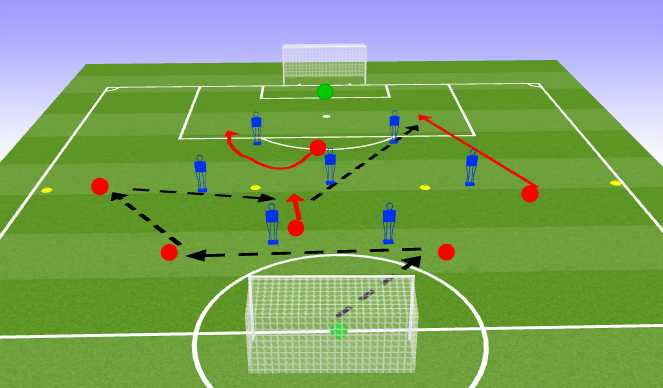
See the guidance at the top of this page to understand why you are not seeing interactive Football/Soccer images.

4. Playing structure
Playing structure 2
These patterns are designed to give players a framework which to work from during game situations. This also familiarizes the patterns with realistic distances and game conditions. They can be repeated unopposed and semi opposed
Goalkeeper to centre back to opposite centre back (high ball speed)
Ball into the full back who sets to the centre back who plays into midfield (quick play)
Midfielder plays ball into channel for wide player (movement in off the line)
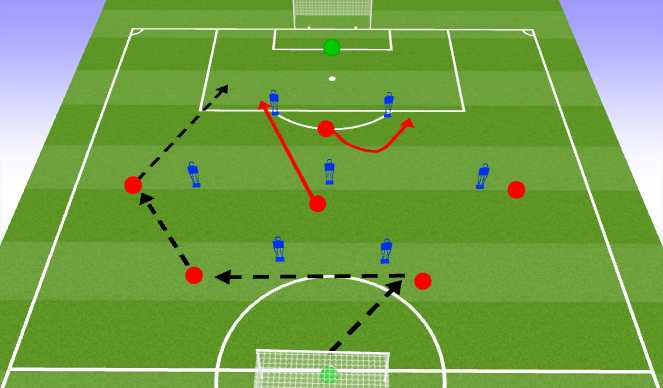
See the guidance at the top of this page to understand why you are not seeing interactive Football/Soccer images.

5. Playing structure
Passing structure 2
These patterns are designed to give players a framework which to work from during game situations. This also familiarizes the patterns with realistic distances and game conditions. They can be repeated unopposed and semi opposed
Goalkeeper to centre back to opposite centre back (high ball speed)
Ball into the full back who plays into the corner of the box for a midfield run
9 - consider moving away from the flow of the play to create space for the midfield run
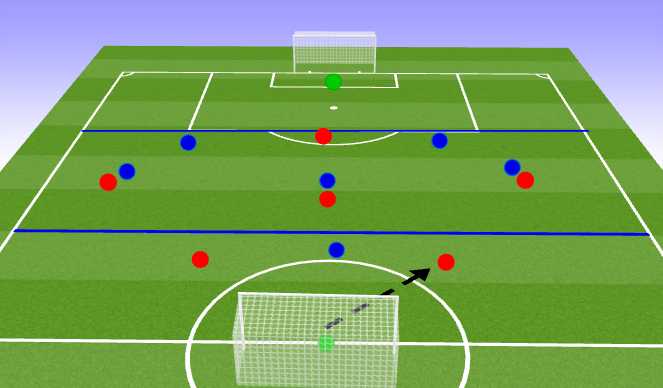
See the guidance at the top of this page to understand why you are not seeing interactive Football/Soccer images.

6. Game application
6 v 6 game
Pitch split into 3 thirds
Blue lines represent the off side lines
Attacking team can build up in there own third, blues can press.
SUFC PRINCIPLES
Look forward, play forward, run forward
Point, Join, Run
Penetration vs Probing
Quick play
Progressions: incentive for the defending team to win the ball high and score (worth 2 goals)








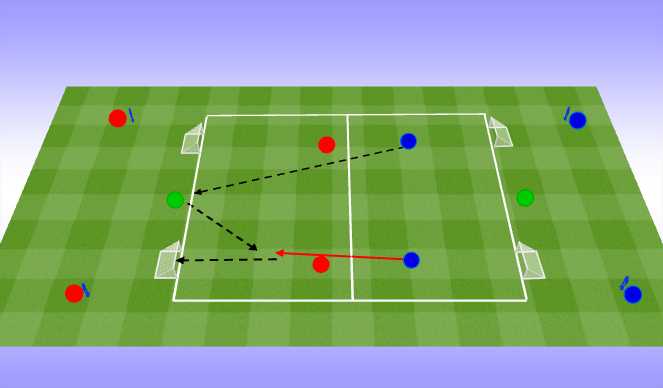
 Play animation
Play animation Play step-by-step
Play step-by-step Repeat (toggle)
Repeat (toggle) Full Screen
Full Screen Pause
Pause Stop
Stop
1. 2v2+2 (point, join, run)
2v2+2 game to introduce the topic/principles of third man runs. (Ensure near, next, far is high intensity)
Players start from behind the manequin on their respective half of the pitch.
On the whistle they sprint onto the pitch to play a 2 v 2 + 2. They can use their 'home' base player to probe but are encouraged to utilise the point player to combine and create a third man run option.
Teams play until a goal is scored or the coach rotates.
Game is to introduce an intensity to the session as well as competitive element (blues vs reds)
Player /coach considerations:
Disguise on the pass
Weight and timing of the pass
Desire to run forward to join the point player
Variation of movement and double movements
Timing of the movement
Angle of body position
Scanning and awareness